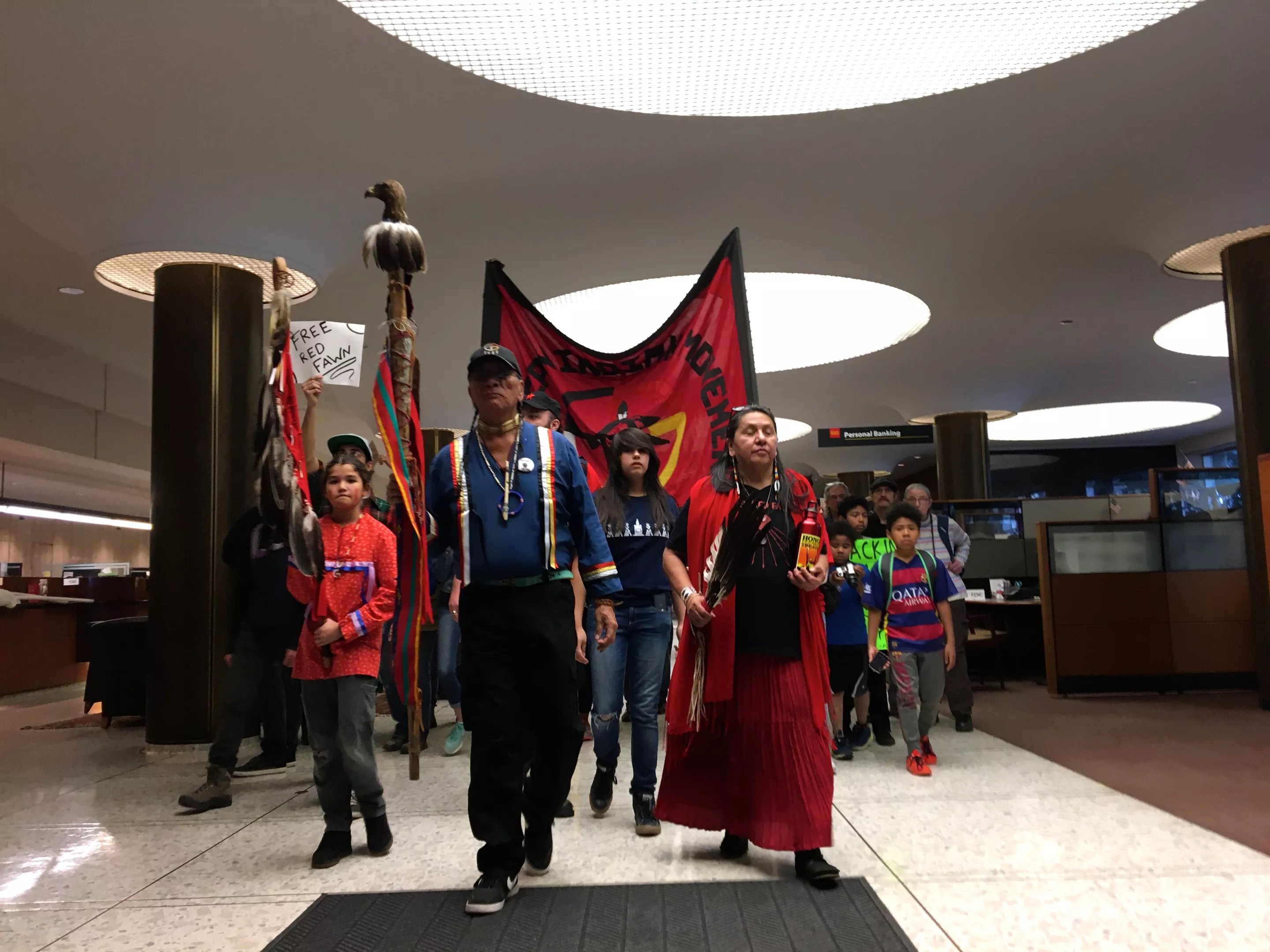
Chris Walker

Audio By Carbonatix
When Wells Fargo employees and security guards saw more than 200 indigenous activists and allies marching down Broadway today from the State Capitol to the bank’s corporate office at Broadway and 17th Avenue, they tried to seal off the building.
Instead, protesters burst through one of the front doors. A brief scuffle with security guards ensued, but the entrance was successfully breached, and dozens of demonstrators streamed inside.
“Native treaties, Native rights, hey, Wells Fargo, water is life!,” they shouted.
For the next half-hour, the main bank branch of Wells Fargo was completely shut down while the group demonstrated in front of stunned bank employees.

Chris Walker
The protest was in support of efforts in North Dakota at Standing Rock to oppose construction of the Dakota Access Pipeline, which many believe poses an environmental threat from potential oil spills that would contaminate surrounding rivers and water sources. The path of the proposed pipeline also takes it through sacred burial sites and land that the Sioux maintain was Indian country under the Fort Laramie treaties of 1851 and 1868 – treaties they say were broken.
On Wednesday, February 7, the Army Corps of Engineers approved an easement for the pipeline to cross the Missouri River. The directive comes from President Donald Trump.
But the reason that the Denver activists disrupted business at Wells Fargo is because the bank is one of the principal financiers of Energy Transfer Partners, the corporation behind the pipeline.
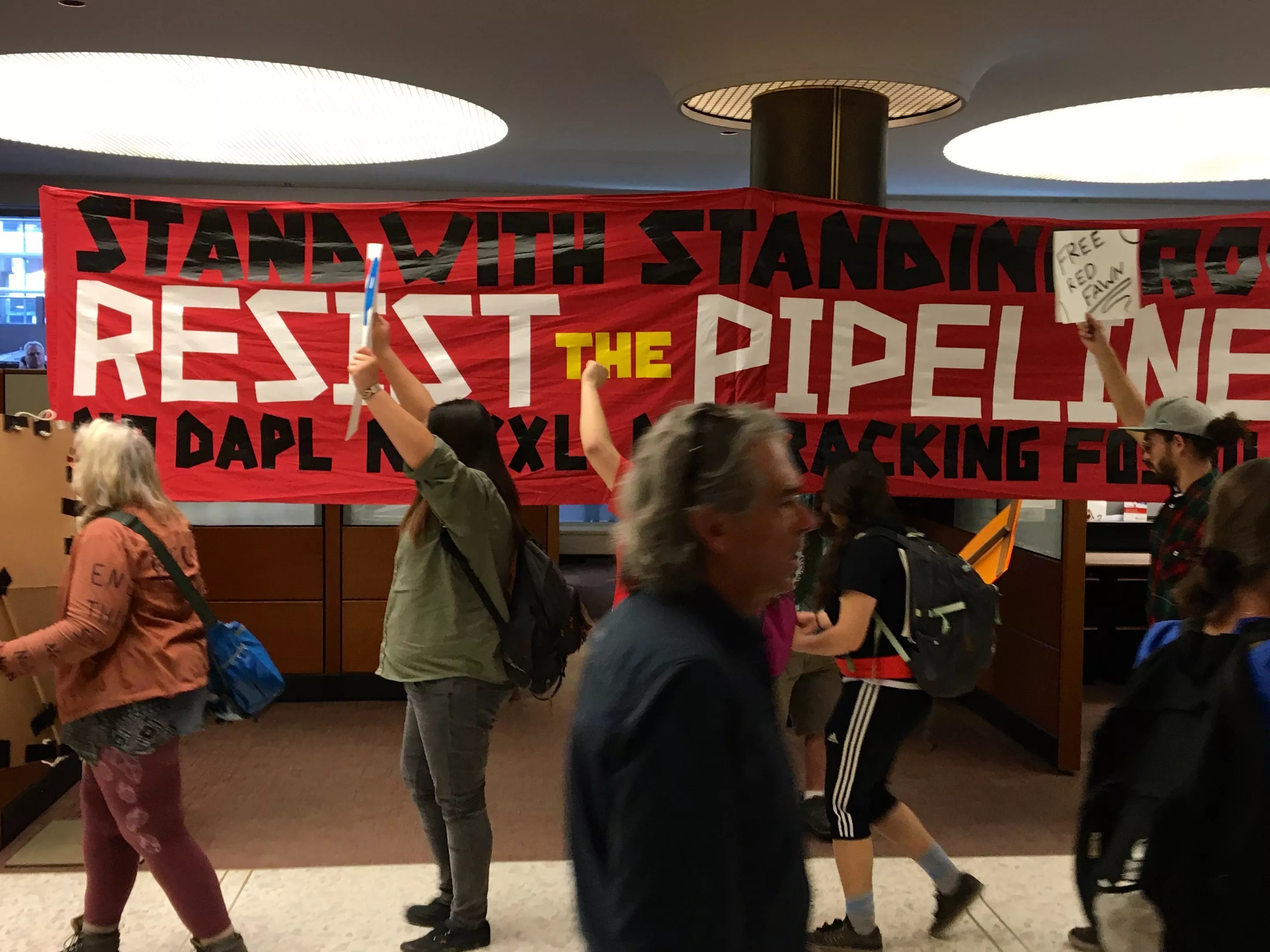
Chris Walker
They have reason to believe that protesting Wells Fargo will be effective. On the same day that the Army’s engineers approved the pipeline easement, the City of Seattle announced that it is divesting nearly $3 billion from Wells Fargo, its primary financial service provider.
Seattle’s nine-member City Council voted unanimously to end its two-decade-old relationship with the bank.
Indigenous activists in Denver hope that the Mile High City will follow suit. Or maybe Wells Fargo will decide to stop financing Energy Transfer Partners on its own.
Police and security guards quickly formed a perimeter inside the bank. Employees of Wells Fargo looked uncomfortable, huddled in a group behind the bank counter and muttering words to each other as demonstrators before them chanted, waved flags and hoisted signs.
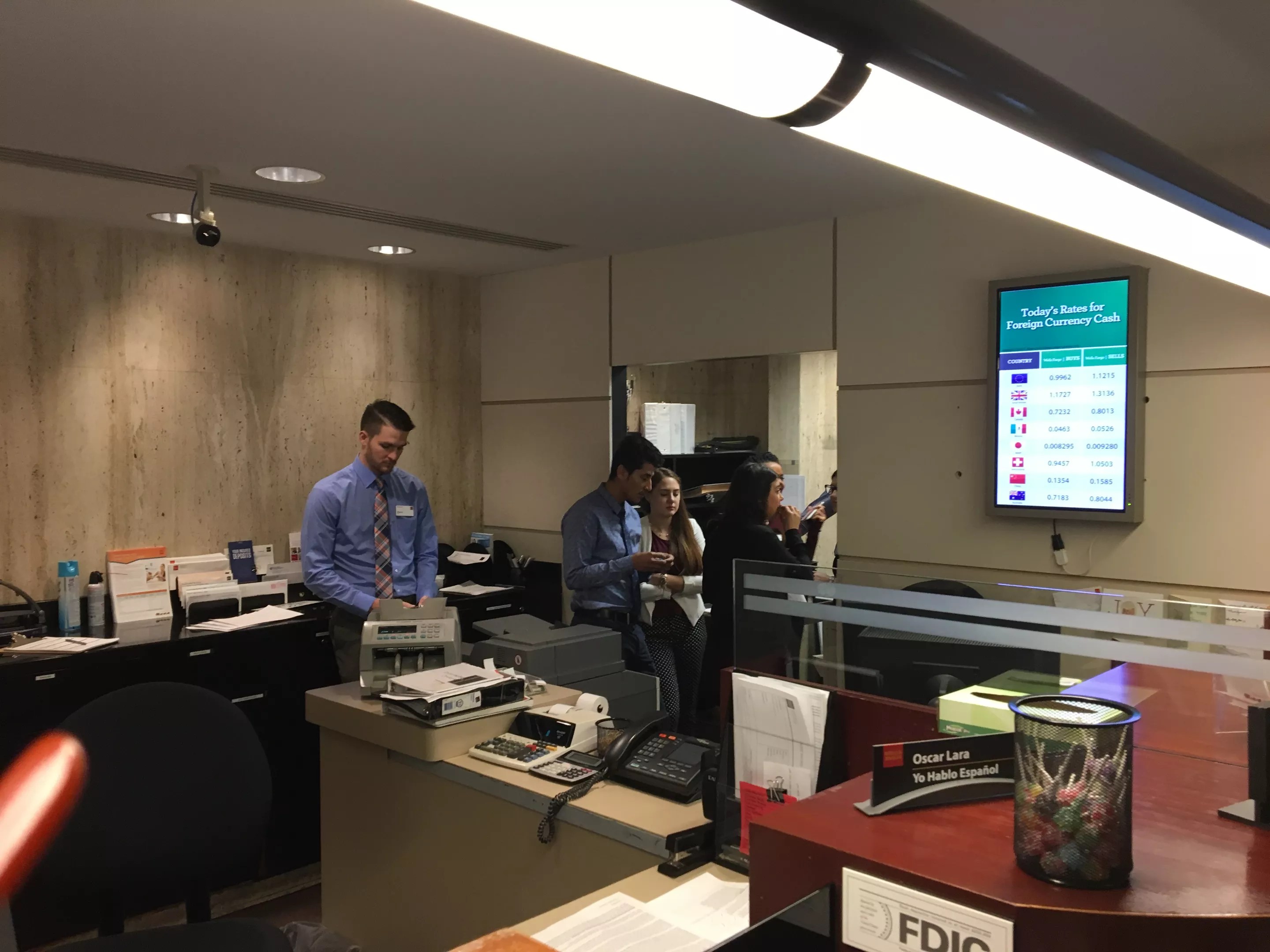
Wells Fargo employees huddle behind the counter.
Chris Walker
Glenn Morris of the American Indian Movement of Colorado consulted with some of the police officers. He requested a meeting with Wells Fargo’s representatives upstairs, but his request was denied.
Some of the security guards tried giving orders through a megaphone but were quickly drowned out by chants.
“Ladies and gentlemen, will everybody…”
“Water is life! Water is life!”
Denver Police Commander Ronald Saunier of District Six told Westword that officers were “trying to keep things low-key.”
Police officers eventually showed up with synthetic zip ties – for handcuffing – hanging off their belts.
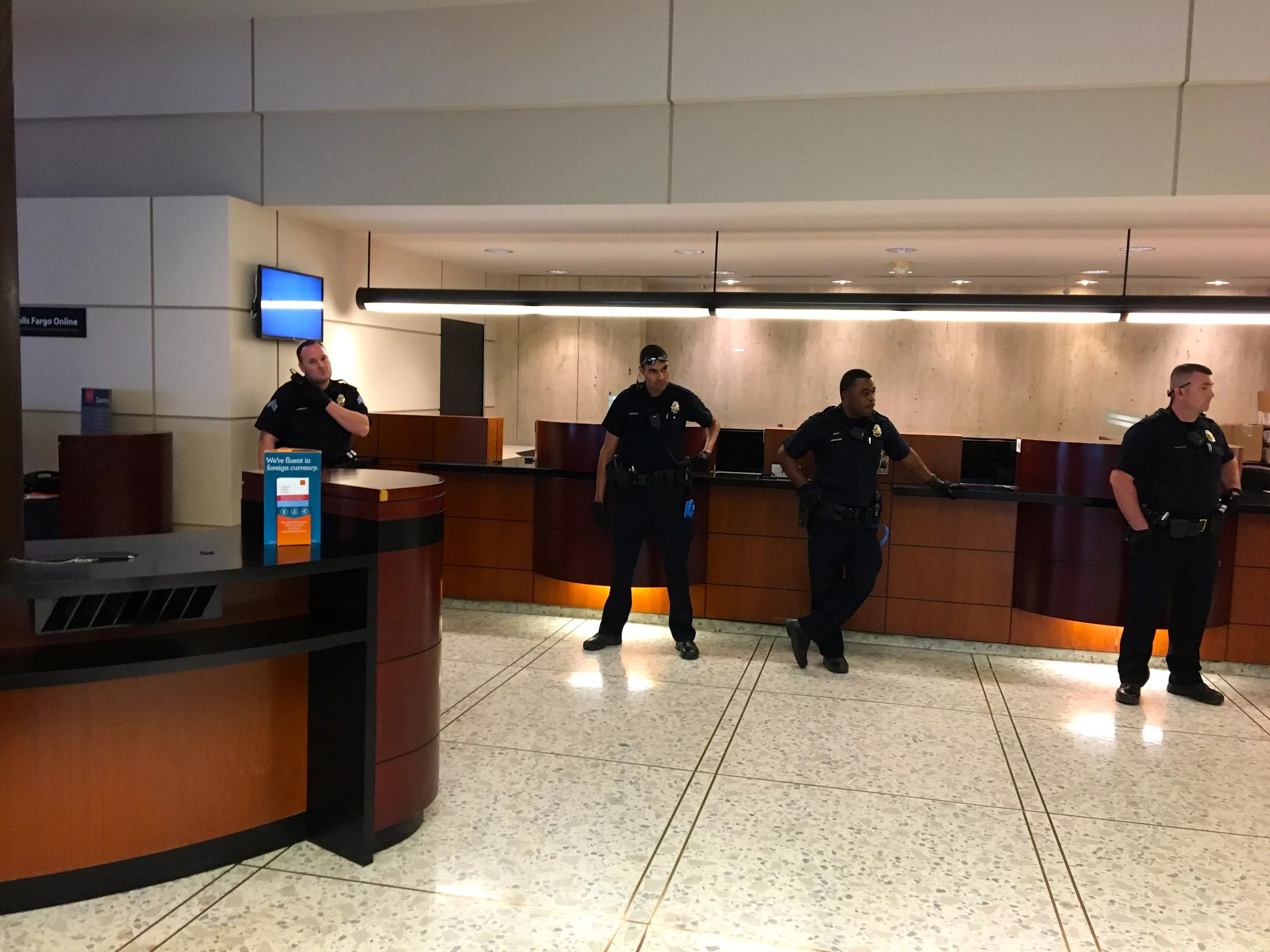
Denver police officers observe the demonstrators.
Chris Walker
Then came orders from a loud megaphone:
“The time is 1:32 p.m. You have three minutes to comply, or you will be subject to arrest.”
About three dozen demonstrators glanced nervously at the police officers around them.
Then Morris quieted down the crowd.
“We sent our notice to the corporate offices upstairs,” he shouted. “They refused to meet us. This is our message to them: Wells Fargo, you are criminals. Your money is covered in oil and blood. If you think this is the last time you’ll see us, you are mistaken. We will see you also in the Denver City Council, where just like Seattle, which divested itself of three billion dollars…the City of Denver will make its mark as well…. Boulder, Fort Collins, Lakewood, Evergreen, Aspen, Vail – if you didn’t learn anything from ripping off your own customers, you’re going to learn something from ripping off Native people!”
“We will be back!” he continued. “You should impress upon your corporate officers that it is in their best interest, and the best interest of employees, that if they don’t want to bankrupt this corporation, then they should find a conscience…. They are killing our people, and you are helping them!”
With that, the demonstrators left the building. There were no arrests.
Once outside, they joined dozens of protesters who had been picketing along the sidewalk on Broadway.
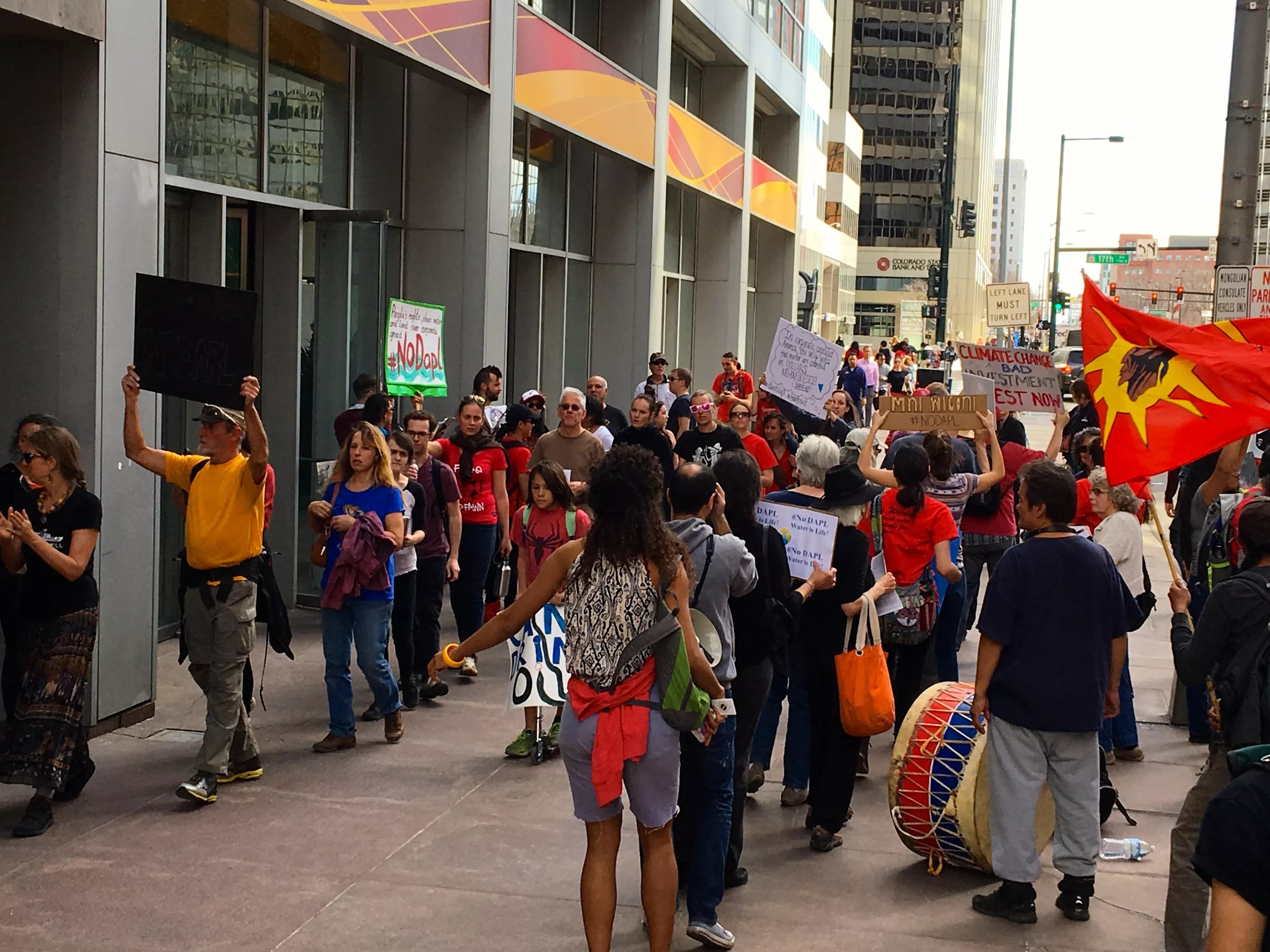
Chris Walker
Morris filled them in on what had happened inside.
“We made a demand to the corporate officers that we want them to divest from the DAPL project. They refused to meet with us. They said that at some future time they might meet with us,” he said. “We weren’t satisfied with their response, but there was nothing unusual about that.”
To a group of reporters, he added, “People were prepared to be arrested here today, but you saw what happened: [Wells Fargo] didn’t do business as usual here today. Every one of their employees had to stop and think about what they’re doing as a corporation. We achieved that purpose today. We woke up Wells Fargo. The police told us that they heard us all the way up to the top corporate office.
“Our going to jail would not have served any useful purpose. There will be other days, believe me. We’ll be back.”